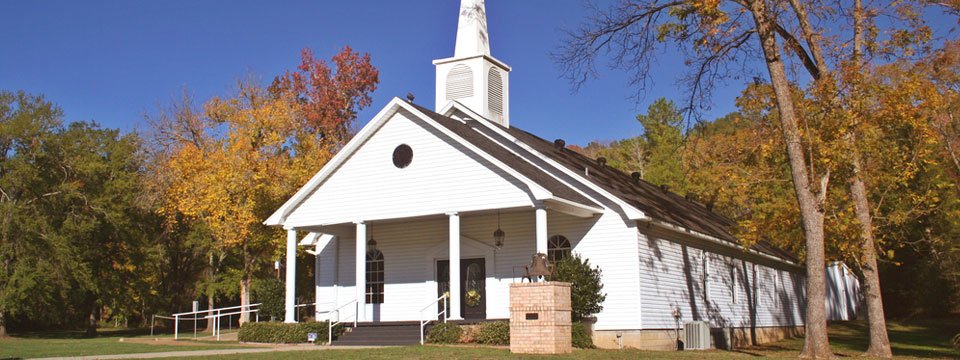
by Caleb Moore | Apr 9, 2019
Friedrich Nietzsche once claimed that God was dead. He did
not mean that in the literal sense, but many took it to task to prove that the
idea of God had indeed died. Just a short time ago, the popular culture was
awash in the fervor of the new atheist movement. There were several figures at
the head of this charge who were dubbed the four horsemen of the apocalypse.
Christopher Hitchens led the advance until he lost his battle with cancer.
With the ringmaster gone, the number of debates and books
have begun to dwindle. Their charge against God has slowed to a crawl. The only
man left with any kind of real influence on a popular level is Sam Harris. He
wrote a book in which he attempted to show that objective morality was possible
without God. It was widely panned by scholars for simply redefining terms in
order to make his case. Sure, there are plenty of atheist, and the number may
be growing, but it is not because of the evidence.
There is no doubt that the Internet has fed minds hungry for
disbelief enough argumentation to justify their rejection of God. The new
atheists are experts in misinformation and crafty rhetoric that appeals much
more to the emotions than it does to the mind. Let me give you an example to
prove my point.
In a recent conversation I had with Seth Andrews, one of the
top atheist podcasters, a subject was brought up that is a common objection. His
claim was that God had been in favor of human sacrifice. Not only was God in
favor of it but had at one point demanded it.
The story he referred to is found in Judges Chapter 11.
Jephthah makes a vow to God that if God would help him win his battle then he
would offer up whatever comes out from the door of his house when he returned
home. Unfortunately, it’s his daughter who comes to greet him and he sacrifices
her to God. According to Seth this is God accepting and taking pleasure in
human sacrifice. If this was true then God might not be the loving God we claim
him to be.
One only has to open to that chapter and read the story to
know that Seth and other atheist, like Richard Dawkins, who use this argument
are severely mistaken. First, we know the Bible says we should never make vows
like this to God. His vow was sinful. Secondly, God never does ask for him to
follow through with his vow, and Jephthah doesn’t follow through with it
either.
If you read the rest of the chapter, he instead gives his
daughter over to temple service. She does not mourn for her life but instead
she mourns for her virginity (vs 38) because she would be married to her temple
work and not a husband. Her father gave her to godly service instead of the
burnt offering he promised. God doesn’t ask him to do this either. So God never
asks Jephthah to make a human sacrifice nor doers he accept one. This isn’t
hard to decipher. It’s clearly in the text, and no Hebrew or scholarly article
is needed to decipher this.
If this misinformation about God wanting human sacrifice is
so easily disproven then why do those who claim to be experts on the subject
use it? The reason is because Atheism is dead. These types of claims are
nothing more than the re-reading of an obituary.
Even when confronted about this misinformation, it seems as
though this line of argumentation continues to be popular. Many atheist claim
to be only concerned with truth, yet they are easily satisfied with misleading
arguments and emotional rhetoric. You can sell a lot of books if you claim to
disprove God, but dressing up a corpse doesn’t stop the smell.

by Hannah Hanzel | Mar 20, 2019
As I drove, I smiled. The road was long
from Oklahoma City to McAlester, but it was always worth it. I pulled into the
old, cracked parking lot of my former home church. My joy turned to fear as I
wondered, will they remember me?
The fear was quickly scattered as I
walked under that tall steeple and through the propped-open, glass doors. The
greeters were more than kind faces; they were old friends. This church was chock-full
of memories from 4th grade all the way up to my young adult years. It was the
church that built me.
As I walked the halls, I could almost see
shadows of myself. I saw 4th grade Hannah working on homework in a side room as
mom attended her Tuesday Morning Ladies’ Bible Study. I saw 6th
grade Hannah sharing her new iPod Shuffle music with her Girls in Action
friends. I saw 8th grade Hannah crying in the hall after her “crush”
brushed her off again. I saw high school senior Hannah laughing as she painted
the nursery with the younger girl she mentored. I saw young adult Hannah being
prayed over by the elderly ladies Sunday School before she left for Oklahoma
City and her first “grown-up job.”
So much of who I am today was built up
and developed by my home church in McAlester. I think of Sunday School teachers
like the Grizzles, Pools, Leningtons, Stephanie, Linda, Julene and so many
more! I think of my old bosses and dear friends like the Briggs and the Hutsons.
I think of the ministers that shaped my walk like Randy Adams, Brad Millsap,
Steve Lunsford, Linda Lowber and many more. I richly recall my mentors Pam,
Janice, Carrie, Jennifer, and others. Lastly, I remember the older couples that
invested in me like the Sossamons, Parringtons, Sherrills, Braswells, and Durants…
and simply too many more to name.
First Baptist Church in McAlester was
made of more than mere brick and mortar; it was built by the legacies and
devout service of hundreds if not thousands of saints, to the glory of God.
That church they built is the church that built me.
That church built my joy for missions. I
saw this exhibited in them by the teams of encouragers that sent my family and
me as we served as missionaries overseas for five and a half years. I saw it in
the Barbie dolls they sent me as a Missionary Kid for Christmas. I saw it in my
Girls in Action leaders’ eyes as they retold a missionary’s story to our group.
I saw it in the full offering plate at times of church-wide missional giving. I
saw it in the collection of numerous, international flags that lined our
sanctuary. This is true joy for missions.
That church built my perception of
sacrifice. I saw this in the rows of pews filled with precious widows, putting
their gifts in the offering plate. I saw it in prominent, wealthy individuals
and couples that chose humility and a life of behind-the-scenes service. I saw
it in the children’s director who overcame familial hardships and put her
ministry’s children first. I saw it in pastors who said goodbye in order to
obey the Lord. I saw it in more than generous monetary gifts in order to fund a
mission trip. This is true sacrifice.
That church built my perception of
mentorship. I saw this in the youth pastors and their wives as they hosted
dozens of awkward, goofy teenagers. I saw it in the prayerful watch of precious
senior adult women, one Sunday school class in particular. I saw it in pairing
with that Sunday School class to learn the art of fruit basket arrangements…
what a fun day that was! I saw it in the careful instruction of Sunday School
teachers, including my Nana who led my 10th grade year. I saw it in
the loving rebuke of my boss and friend, Carrie. This is true mentorship.
Because of this church that built me, I
am pressed forward for joy in this journey with Christ as my Savior. As I sit
under new instruction and with new fellowship at my current church, I reflect
on my time at First Baptist in McAlester similar to how Paul viewed the church
in Philippi. I cannot close these thoughts and fond memories in any better way
than how Paul himself did, by doing so with Paul’s blessing on the church. This
I pray for First Baptist Church in McAlester…
“I give
thanks to my God for every remembrance of you, always praying with joy for all
of you in my every prayer,because of your partnership
in the Gospel from the first day until now.I am
sure of this, that he who started a good work in you will carry it on
to completion until the day of Christ Jesus.Indeed,
it is right for me to think this way about all of you, because I have you
in my heart, and you are all partners with me in grace, both in my
imprisonment and in the defense and confirmation of the Gospel.For
God is my witness, how deeply I miss all of you with the affection of
Christ Jesus.And I pray this: that your love will keep
on growing in knowledge and every kind of discernment,so
that you may approve the things that are superior and may be pure and
blameless in the day of Christ,filled with the
fruit of righteousness that comes through Jesus Christ to the
glory and praise of God” (Phil. 1:3-11).

by Angela Sanders | Mar 12, 2019
It’s happening again. Do you feel it? The waters that had
finally calmed, allowing hurt feelings to heal and disillusionment to sprout
new hope, are rippling once again, churning, in some places.
Political unrest and controversy never let up, of course,
but it seemed to me, after the last presidential election, most of us agreed to
an unspoken truce on some level, if for no other reason than because we ourselves
needed to convalesce. Well, we must be all better now because harsh tones,
biting words, and judgmental assumptions are whizzing past again from every
direction like poison darts.
I don’t know about you, but I’ve got friends and loved ones out there on both sides of many
issues currently being discussed, and I don’t want any of them to get hurt. Or lost. I can’t protect them on my own,
of course, but I can offer advice to
my brothers and sisters who feel compelled to stand up and speak out.
If that’s
you, please…
Spend at least as much time letting
God examine your heart as you spend examining the behavior of others. We are poor judges of our own character (1 Cor.
4:4). Because you’ll be stepping out
with God’s name on, let Him do the inspecting.
Think before you speak. Emotions can muddy thinking. Rush in
to a conversation, and you’ll probably owe someone an apology before it’s all over
(Prov. 19:2). The rule of thumb in our house is 24 hours if you have the option
of waiting that long.
Say what you mean and mean what you
say. The burden of clarity is on the speaker, not
the audience. If you don’t want to be misunderstood, make it impossible by
choosing your words carefully and telling people what you don’t mean as well as
what you do mean.
Make sure you know the meaning of a
word before you use it in a sentence. If the word is nuanced, clarify your
intended meaning. Likewise, confirm a speaker’s intended
meaning before offering a different perspective. Doing so helps keep
conversation on track and prevents unnecessary conflict.
Say as little as necessary to get your
point across. Remember,
“when words are many, sin is not absent”
(Prov. 10:19).
Let facts speak for themselves. Actual facts from credible sources. This
will require some research on your part, but you could save yourself embarrassment.
Your opinion matters, but everyone has an opinion. If yours isn’t based on truth,
it will be dismissed.
Remember your audience. The person to whom you are speaking is
a living, breathing, feeling, thinking, wanting, needing human being with major
flaws, just like you. Treat them how you want to be treated even when they
don’t reciprocate (Luke 6:31). Their friends and loved ones—who are also
listening—will not only appreciate your efforts, but respect you for them even
if they aren’t in a position to say so.
Examine your motives. If your goal is to make yourself look
good, intimidate, shame, humiliate, confuse, or stir up dissention, you are not
in step with the Father, whose ultimate goal in all things is His glory, not
yours (Isa. 48:11). Wait to post until you are.
Exercise discernment. Don’t believe and/or pass on everything
that matches your mood. Check facts, verify “biblical” content, listen for
tone, scrutinize word choice, and examine motives. If you wouldn’t have written
it yourself, don’t let it speak for you (Rom. 14:22).
Be patient. Remember that irrational, sweeping,
and/or biased comments usually come from a place of ignorance and/or fear. Responding in like-kind will only confirm
the speaker’s bias, stoke their fear, and make it difficult, if not impossible,
for you to share information that could have changed or eased their mind.
Give people the benefit of the doubt. Wait for individuals to show you their
worst before you believe it. Categorizing people by age, gender, religion,
nationality, party, etc. may prove useful when attempting to provide for
general needs, but it should never be used to analyze or assume the content of
individual hearts. Like snowflakes, no two of us are exactly the same.
Ask objective questions. You may be pleasantly surprised to
discover a particular speaker’s perspective is not what it originally seemed,
but if it is and your goal is to persuade, you’ll find questioning to be a much
more effective technique than debate. While counterpoints invite counterpoints,
questions encourage introspection and the reevaluation of personal thought. Furthermore, people who feel heard are more
likely to listen.
Forgive. Limited in our perspective, knowledge,
and wisdom (1 Cor. 13:9, Phil. 1:6), we’re just kids running around with sharp knives,
really. All of us. The only way we’ll ever come out on the other side of this season
healthy, whole, and still loving each other is to forgive one another in real
time, to believe and act as if those around us don’t owe us anything for the
wrong they’ve done to us because they really don’t. Sin is anything that goes
against God’s will and nature, not ours. It’s between us and Him, not us and
them (Ps. 51:4).
Don’t put words in others’ mouths. This includes God. Everything He had
to say to us, He inspired men to record in the Bible (2 Tim. 3:16-17), and He
isn’t a fan of people taking creative license with His Word. Add to and/or take
away from it at your own risk (Rev. 22:19)!
Don’t make political jokes. Political jokes are particularly
divisive as they often require the jokester to overgeneralize ideas and events,
make unfounded assertions about individuals and/or people groups at their
expense, draw an “us” versus “them” line in the sand, and/or make light of what
others take very seriously. They reek of ignorance and arrogance.
Don’t burn bridges. Like anything else God gives us, the
relationships in our lives are gifts meant to be returned to Him in worship,
tools for the advancement of His Kingdom for His glory through the spread of
the Gospel, not gadgets for our own comfort, amusement, or convenience. The
burden of Truth our relationships must bear is weighty; insofar as it is up to
you, preserve and keep them (Rom. 12:18).
Well, that’s
my two cents. May God use it for good.
Listen, friends,
in a matter of months, we will elect a President. Some of us will celebrate and some of us will
mourn, just like last time, but we’ll all deal with what we’ve got. Much could
change, yes, but people will still need Jesus. This being true, whom we elect
in 2020 isn’t nearly as important as whom we glorify in the process.
Please—I beg
you—be wise!

by Ryan Smith | Feb 21, 2019
Editor’s note: The following does not constitute legal advice, as the writer is not a licensed advisor on sexual abuse prevention. The Baptist General Convention of Oklahoma suggests readers visit MinistrySafe.com for legal consultation to help churches and other ministries reduce the risk of sexual abuse.
Like many of you, I was shocked and deeply saddened by the Houston Chronicle’s three-part exposé on sexual abuse within Southern Baptist churches. My heart breaks for the victims, their families and the echoes of suffering these survivors face daily. I hate anything that gives Christ a black eye and this revelation of sin within His bride—the church—is dreadful.
While the disclosure from the Houston Chronicle is thorough and justified, research has opened a wound for our churches. I have been grateful to God for the leadership of the Southern Baptist Convention (SBC) in their responses. Instead of denial or public relations gymnastics, they have embraced the news with resolve, compassion, repentance and justice.
SBC churches are
autonomous in our governance. While leadership can form policies, practices and
other proactive measures, the responsibility of protection lands at the local
church level.
Admittedly, many
of our local churches are unprepared or overwhelmed by the sense of duty and
desire to protect the least of these in our midst from the depravity of sexual
abuse. For churches at the local level wondering where to start, I offer four ways
to help protect your church from sexual abuse.
Meaningful Membership
Meaningful
membership has caused debate and discussion amongst local churches. Southern
Baptists have historically offered an aisle of invitation and a welcome hand to
receive those who desire to come and unite with our local bodies as church
members. This is a vital and important part of our local church practice.
However,
Scripturally, at the minimum, a church member is someone who is a surrendered
follower of the Lord Jesus Christ. They are someone who has publicly made a
profession of faith through baptism and shows the fruit of repentance as a sign
that the Holy Spirit indeed lives and works within them. Do you know this is
true about your church members?
Membership in our
churches, in most cases, should be a baseline pre-requisite for serving in the
body—particularly with children or youth. Knowing our members come from
different backgrounds before conversion and struggle with various aspects of
depravity, someone in leadership should know not only that a member is trusting
and believing the Gospel, but whether or not they are qualified to lead, teach
or protect in a service capacity. At minimum, this requires a background check
and training of some sort if someone desires to serve in one of these areas.
Membership in our
churches must be more than a name on a roll. Membership must mean certain
things for our churches. While unfortunate, church members can certainly be the
ones through whom sexual abuse comes. We owe it to our flocks to guard the front
gate with diligence, care and proactive measures to keep wolves from entering
with the sheep.
Build Bridges With Local Law Enforcement
God may have
placed someone in local law enforcement in your church family. If so, use them
as a resource to learn not only what to do if abuse is reported, but also what
signs to look for, and what procedures to implement in order to protect the
church family from abuse.
If you do not
have a local law enforcement officer in your church, call your local police
department and ask pointed questions. Build relational bridges between the
church and local law enforcement to know whom to call, when to call and how to
protect your church from sexual abusers.
Evaluate Practices and Procedures
Practices and
procedures are only as good as their continual application. If you don’t have
written practices and procedures in place, form a team, do the research,
involve law enforcement, craft a document, thoroughly communicate it, then
communicate it some more.
If you do have a
document, regularly assess how it is being followed and implemented in your
church. Evaluate your practices and procedures with the idea that someone will
try to maneuver through them in order to sexually abuse a young one in your
midst. That is a difficult idea to stomach, but assuming no one will target
your church will lead to sloppy practices and open doors for abuse.
We want to be
open to anyone seeking to turn from their sin and run to new life in Christ.
However, to anyone approaching our facilities or activities with a desire to
harm, our preparation in advance should sternly warn them that our programs and
facilities are not safe places for their strategies.
Create An Open Culture For All
The message of
the Gospel is a call for the broken and oppressed to come find new life in
Jesus by rejecting their old ways of sin and depravity and embracing new life
in Christ empowered by the Spirit. Our churches must create a culture that
embraces this Gospel call for everyone.
Every Sunday morning,
in our congregations, there are those who have been victims of sexual abuse as
well as those who are in danger of becoming victims through a variety of
avenues. Do those people know they can and should open up to church leadership
about sexual abuse? Does your church have a culture of openness and honesty
about our depraved nature and broken world? We must continually sound the call
for openness, dialogue and healing through the cross of Christ. Our people must
know that our churches are safe spaces for talking about abuse.
Something that
may be difficult to consider about God’s call for sinners to new life in Christ
is that each week in our congregations, there are also likely those who have
either been the abuser or are in danger of becoming an abuser. Do they know the
Gospel is for them too? Do they know that the church is a safe place for
openness, accountability and growth away from a life of sin? Of course, proper
procedures and practices must safeguard our churches, but we must also be willing
to walk with those who feel they may have disqualified themselves from the
blood of Christ due to depravity in their present or past. Jesus’s blood is
enough to cover every sin.
Clearly, we in
the SBC—from elected leadership to membership—have failed to take seriously the
necessity of proactive and effective measures to prevent child abuse and
protect those who suffer in its wake. For that, we must continue to extend
compassion, repentance and due diligence in every area.
I wish I could
say that employing these strategies will 100 percent safeguard your church from
sexual abuse. Yet on this side of heaven, no organization, group, facility or
structure is immune from the effects of sin. But may our diligence reflect our
desire for Christ to be exalted in our local church bodies. May we receive the
weakest among us as we would receive Christ Himself.
Let us prepare
with love, care and determination that as far as it depends on us, nothing will
get in the way of our declaring the good news of Jesus Christ to those in our
midst.

by Angela Sanders | Feb 13, 2019
“Love you, guys!” I called across the expansive lawn my
classmates and I had walked together almost thirty years ago, our paths
diverging once again.
I hadn’t seen most of them during those thirty years and
hadn’t expected to see them again until this summer when we had our 30th
high school reunion, but one of us passed away unexpectedly last week.
It was a shock, to say the least. Recent events had lulled me into a false
sense of physical security. Everyone in
my circle who’d passed away lately had had some kind of warning first, a
diagnosis, advanced age, a known risk taken.
This friend, however, just died. Going
about her business, having no reason to think anything big was about to happen
to her and her family, she just stopped living, right there in the left lane of
life.
So my friends and I gathered to pay our respects.
Seeing their faces, I was caught off guard by the deep emotion
I felt for each and every one of them, memories rushing in and over each other like
tide waters. We hadn’t spent every day
of our younger years as an exclusive group or anything, but we had cared about
each other and were part of a collective whole that had survived the struggle
and inherent pain of adolescence together, an accomplishment that tends to bind
hearts.
Mourning alongside my friends in the crowded bleachers of
our high school gymnasium, their anguish deeper than my own because they’d
known our mutual friend better, I felt inadequate. Hoping my presence was a comfort on some
level, I longed to do so much more, but there just wasn’t time. We exchanged hugs, offered smiles, and spoke
words of encouragement before parting, and when we did, my heart tore a little.
It felt strange to say “I love you” to people who had no tangible
reason to believe me after our having spent so many years apart, but it was
true, both in the popular and spiritual sense.
Yes, I was compelled by affection in that moment, but the
sentiment behind my “I love you” went much deeper than this pledge-turned-status-update
now conveys in our culture. When I told my friends I loved them, I
wasn’t just telling them how I felt. I
was committing to be for them what Jesus has been for me, a conduit of God’s
love.
That includes being kind, of course, welcoming, inclusive,
attentive…all the ways people traditionally express love. Let’s be honest, though, every decent person,
Christian or not, does these things to some degree for the people they care
about—sometimes for people they don’t—more often if these behaviors come naturally
to people with their personality type.
Loving people God’s way, however, requires something that
doesn’t come naturally to anyone, consistent obedience to His commands, all of
them (1 John 5:2, 2 John 1:5-6).
You see, when we obey the One Who is not only able to comfort
us in times of loss, but also able to rescue us from the consequences of sin,
sustain us through life’s challenges, and set us down safely on the other side of
death when it’s our time to go, allowing His Holy Spirit to correct, equip,
empower, and guide us, we do more than make people feel better about themselves,
their circumstances, and/or us. We give
God room to show the world Who He is, what He’s like, and what He can do, increasing
the likelihood they will either find or continue to cling to Him, the One who loves
them more than they could possibly imagine and holds their eternity in His
hands (John 3:16, Matthew 10:28).
It may sound a
little extreme, but this is the love
we’re called to (John 13:34), friends, whether or not anyone ever recognizes or
notes it.
As for me, my
“I love you” is a promise, and I intend to keep it.

by Caleb Moore | Jan 24, 2019
Christian music has changed a lot since it first entered the scene. When I was younger, there were only a few bands to pick from unless you were into old timey gospel music.
I remember my parents having only a few records of Christian Music, and if you didn’t like Amy Grant then your music choices were cut in half. In spite of this limited selection I was told that I should only listen to Christian Music. That was a problem for me because I didn’t really like anything I heard.
It wasn’t that I didn’t love Jesus; I just didn’t like the songs or the style of music that was available. As I grew older, Christian music went through an incredible transformation and began to explode on the radio and in the stores.
Suddenly you didn’t just have a few popular bands; now you could find Christian music in almost any style. Christian pop has become increasingly popular and influential with their songs, even being adapted into Sunday Morning services
When I was a teenager, some older Christians suggested that I get rid of all my secular music. They convinced me that any song that didn’t sing about Jesus must be of the devil. There was no scriptural argument for that position, but they pushed the issue so much that I finally gave in and threw it all away. That lasted about a month, and then I went back out and bought all my old tapes again.
Silly as it might seem, this became a place where I struggled for sometime. I felt like less of a Christian because I wasn’t up-to-date on the latest musical trends. All I wanted to do was listen to Bob Dylan whose music moved me in a way most Christian music had not. I felt like I had to keep my musical preferences hidden in fear that people might think I am immature in my faith.
It wasn’t until later that I realized why I always had conflict in this area. The truth is, I don’t believe there is such a thing as Christian Music.
That may sound strange so allow me to clarify. I’m in a church while writing this, but the chair I’m sitting on is not a “Christian” chair. The word Christian is a noun not an adjective. Jesus didn’t die on the cross to save pop music; He died to save people who sometimes make pop music. There can be a danger when we make the word Christian an adjective.
There are many books that are labeled Christian that teach things that are contrary to the truth of Scripture. There can be music labeled Christian that teaches false truths as well.
We often slap that word onto things to let people know that whatever is inside is safe and palatable. We’ve turned it into a label that gets applied to things so you don’t have to question it. But Christianity was never meant to be a simple label; it is a role that all of us are called to live out by our words and actions.
Sometimes I listen to Christians who make music. It took a long time, but there are now bands that fit my musical tastes.
I like French Canadian folk music, so I have never had a wide range of options when it comes to finding music. The singers are Christian and sometimes their songs are about Christ.
But I want to be careful how I label things, so that I don’t allow junk food into my heart and mind simply because someone else has slapped the label Christian onto it.





